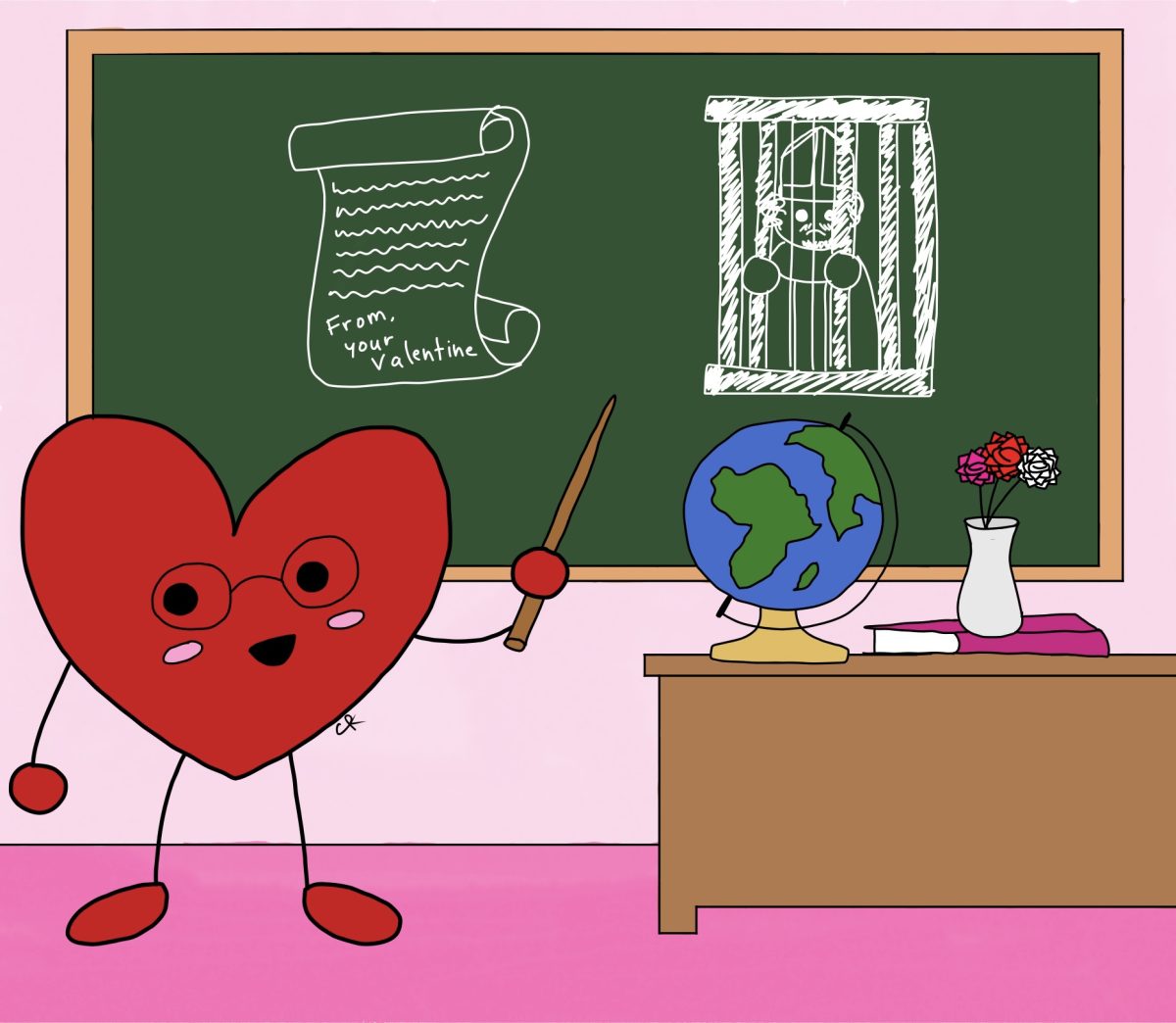Valentine’s Day: a time for roses, chocolates, telling people how you feel or scrolling through social media and watching all the happy couples post about their perfect days. Whether you love or hate Feb. 14, the history of this romantic day is widely unknown despite its popularity.
I did some research on this holiday and found it fascinating. Despite its interesting origins, the tales surrounding Valentine’s Day are dense and pull from many different cultures, so I’ve tried to condense them into a clear story.
The first traces of this holiday date back to the pagan holiday known as Lupercalia.
Lupercalia was a festival that celebrated the Roman god of agriculture, Faunus, on Feb. 15. During this festival, a goat and a dog were sacrificed in order to bring fertility and purity to all the land. This was a huge deal to the Romans, and women would line the streets hoping to be blessed with fertility by being slapped with the hides of the goats. Sounds a little strange to me, but the Romans were really into it.
Unfortunately for the Romans, the Catholics took over, and they outlawed this tradition because they saw it as unholy. Because of its popularity, they founded a different holiday as a means to replace this one. They dubbed Feb. 14 as the feast of Saint Valentine and used his legacy as their way to celebrate love.
Two different stories circulate when the history of Saint Valentine is questioned. Both of these stories involve priests who were martyred during the rule of Emperor Claudius II and fought for love.
The first origin story is about a priest named Valentine who took pity on the young bachelors of A.D. 270. For some context, marriages were outlawed because Claudius II felt they distracted young men from their calling in life: fighting in wars. Valentine saw this and realized God was calling him to perform weddings in secret. It was a pretty good gig for him until Claudius found out and ordered him to be executed. Many believe he was executed on Feb. 14 and is the inspiration for the feast day, but others argue the church most likely did this to cast a shadow over Lupercalia.
Scholars think his story is why we associate Valentine’s Day with love. It’s a good story, and it has a redeemable hero who fought for love and did what he could to make the world a better place. The only thing it’s missing is a love story, but luckily for us, the second Saint Valentine satisfies our romantic needs.
Saint Valentine 2.0 was a prisoner in Rome during a time when Catholics weren’t so popular with the Romans. As he spent time in prison, he developed feelings for his jailer’s daughter and sent her a love letter that was signed, “Your Valentine.” Sound familiar? This was the first ever Valentine sent. When the church decided to Catholicize the pagan tradition of Lupercalia, they used this letter and the overall fight for love as a way to popularize Saint Valentine’s feast day on Feb. 14.
This holiday caught on quickly. The practice of exchanging letters dates back as far as 1415 when Charles, Duke of Orléans sent a Valentine to his wife while he was in captivity. People began to associate the Roman god of love, Cupid, with this holiday, as well. His arrows became a symbol of love and are still a popular expression in many cultures today. Even nature seems to agree love is in the air on Feb. 14, as many birds start their mating season on this day.
So, whether you celebrate this holiday or adamantly don’t, rest easy in knowing the history of Valentine’s Day is more interesting than you might think. Sure, it’s been commercialized over the years, but that doesn’t mean its unique history should be lost in time. Hopefully, this article made you appreciate the history a little more or at least gave you some fun facts to share if your date gets awkward. I wish you all a happy Valentine’s Day and hope it lives up to your expectations, whether high or low.
Hannah Bulgrin is an opinion writer. Contact her at [email protected].

























Paula M. Puschmann • Feb 12, 2024 at 11:50 am
Thank you for sharing this history with us. I found it very interesting on how this all came about. I will definitely share this. Thank you again. This.